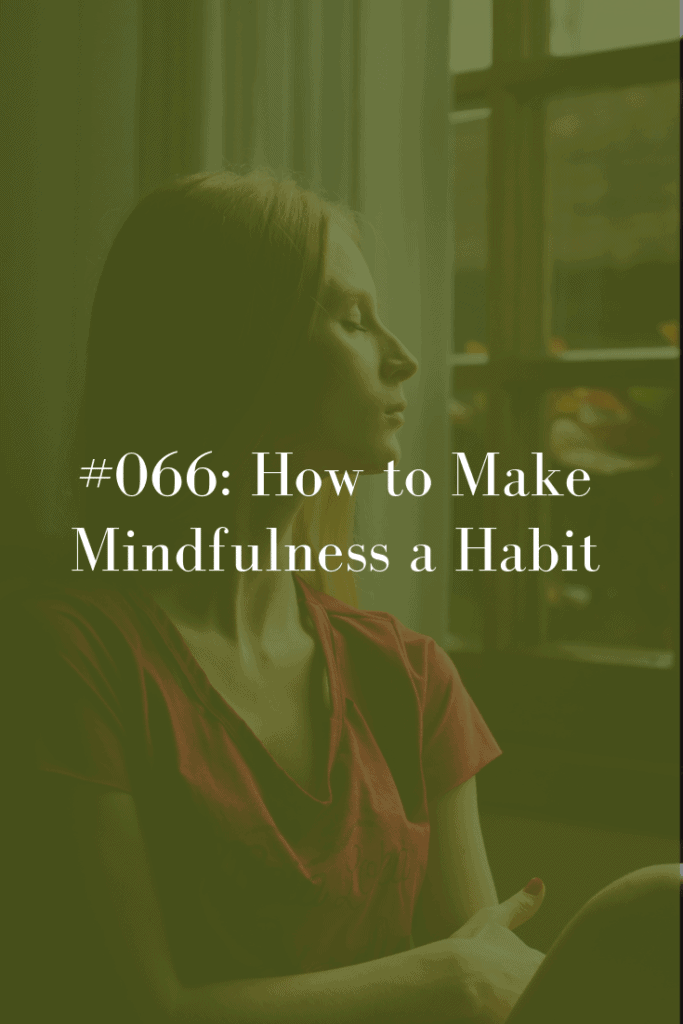
It’s Mindfulness and Self-Awareness month here at Team Medcalf. I know that this is one of the BIG secrets to a truly happy, emotionally close relationship (and the research backs me up on this) so I’m going to teach you how to actually make mindfulness a consistent habit today. No mediation, no hours of your time – I’ll teach you how to do it in just 3 minutes a day!
Before we begin, I want to remind you all that my mission is world peace (really). I believe if everyone felt connected and emotionally close to others, there’d be no need for bullying, hate or war (really). At the very least, the world would be a much better place with happier, more connected people in it. So, if you get good stuff from this podcast, I’m going to ask that you take 5 minutes and leave a review wherever it is that you subscribe. You’ve heard me ask before but, if you haven’t done it yet – I MEAN YOU! Please really leave a review so others can find me and we can spread the word on how to do this whole relationship thing!
Big Problem in Relationships is Future Tripping or Past Tripping:
Future tripping is thinking about all the things you need to get done or things you’re worried about happening.
Past tripping is all about worrying about the past. Whenever you use words like “always” or “never” you’re thinking about your partner’s past behaviors. If you’ve been reading this blog long enough you know not to use words like “always or never” because they’re not true. However, in the moment, it’s easy to go there.
The big problem with this whole scenario is that you were allowing your mind to wander to the future or to the past. You start thinking of these things and these thoughts evoke certain feelings because you feel the way you think.
These types of thinking patterns and ensuing fights are SUPER common but they don’t have to be. There’s a simple answer to stop all this and that’s to be in your moment with what’s currently happening, as much as possible, instead of future or past tripping.
The Answer: Be Mindful
When you’re in your moment, otherwise known as being mindful, you’re aware when these thoughts and feelings arise, and you can stop them! You get off of autopilot and into what’s real in the here and now.
When you’re being mindful, you’ll be able to act, not react. You’re going to notice that you’re having negative or unhealthy thoughts and becoming impatient. You can then tell yourself something different about the situation. You can step back and see what’s happening from a new stance.
Four Empirical Reasons to Be Mindful:
There have been lots of studies about all the wonderful things mindfulness will bring to your life if you practice it consistently, but I want to take a minute and focus on four important ones here:
- Mindfulness decreases emotional reactivity. Basically, you’re able to act, not react which is HUGE for being a better partner and person in the world. It allows you that “pause” button between some stimulus and your response.
- Mindfulness increases cognitive flexibility. This means that, in addition to being less reactive, you’re able to think better, problem-solve and come up with better solutions. The research shows that it “neurologically disengages the automatic pathways that were created by prior learning and enables present-moment input to be integrated in a new way.”
- Mindfulness creates greater relationship satisfaction. Empirical evidence suggests that mindfulness protects against the emotionally stressful effects of relationship conflict and helps you respond better to relationship stress overall and helps communicating your emotions to your partner.
- When your mindful, you’ll remember to use all the great tools you learned! In those moments of stress and conflict, instead of going into autopilot, you’ll be able to stop and access what you learned to help your relationship.
Resources and Links:
Empirical Research on Benefits of Mindfulness












